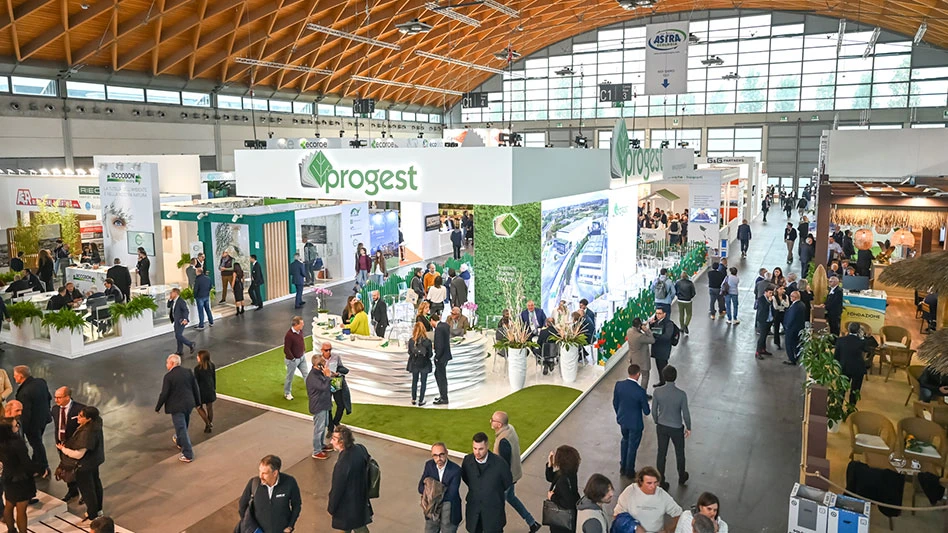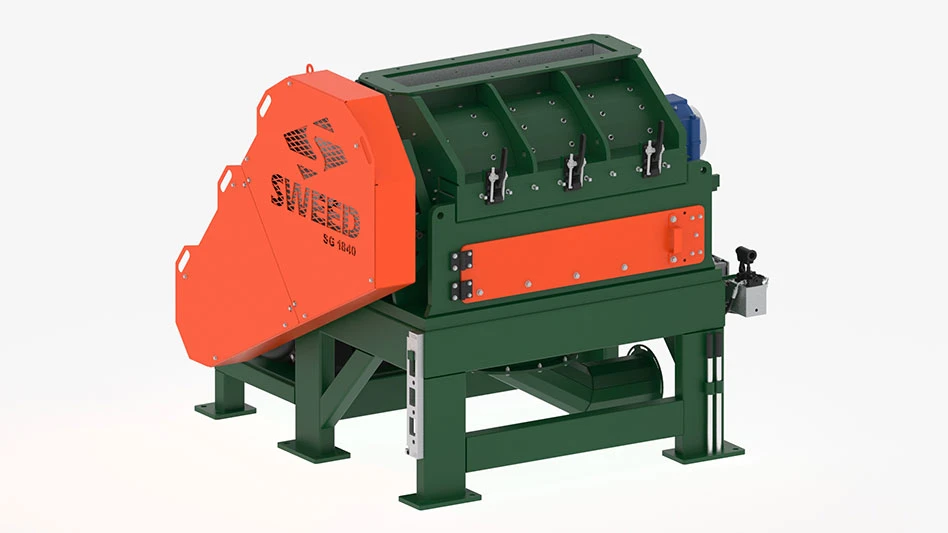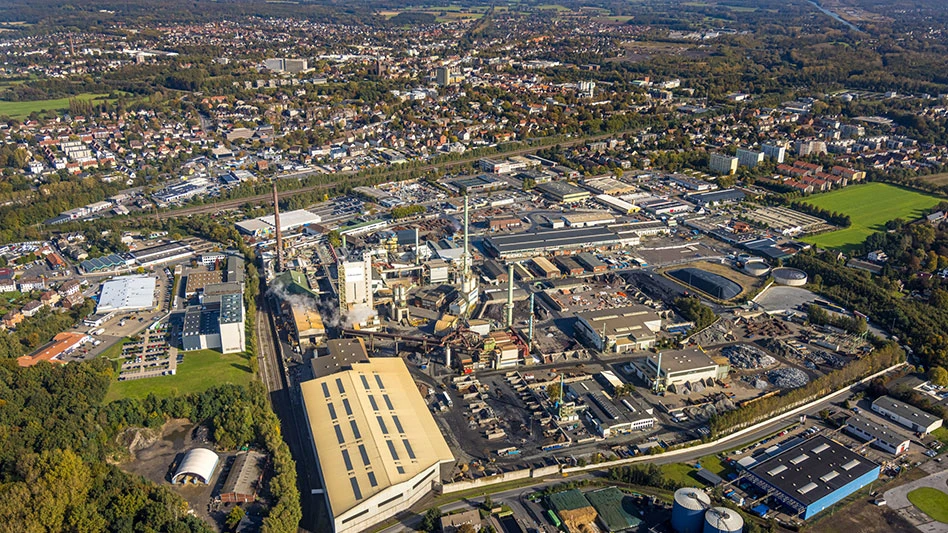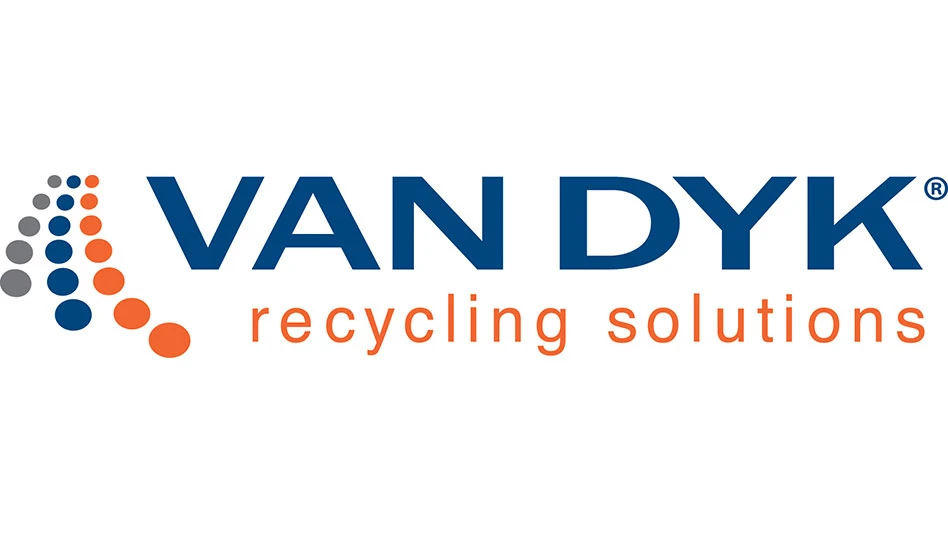
Photo courtesy of Italian Exposition Group
The 26th edition of Ecomondo, Italian Exhibition Group's (IEG’s) international trade show for industrial technologies and services for the circular economy, is scheduled for Nov. 7-11 at Rimini Expo Centre. This year’s theme, The Ecosystem of the Ecological Transition, explores turning end-of-life products into new resources among other topics. IEG says Ecomondo presents the most innovative technologies for sustainable competitiveness. This year also marks the first year that Ecomondo occupies the entire Rimini Expo Centre.
Districts for “beacon” circular economy projects
Ecomondo features three industrial districts for which the Italian Ministry for the Environment and Energy Security (MASE) has given the go-ahead with a contribution to 160 “beacon” projects for the circular economy. Rimini features the WEEE (waste electrical and electronic equipment) District with a specific focus on repowering technologies and new systems for recycling electrical and electronic equipment, photovoltaic panels and wind turbine blades. In the Paper District, the focus is on systems for collecting and recycling paper and cardboard in cooperation with Milan-based COMIECO (National Consortium for the Recovery and Recycling of Cellulose-based Packaging). The last district will focus on the production of plastics with a focus on recycling systems and marine litter.
Textile waste, ecodesign and supply chain sustainability
The textile industry has been identified as a key value chain for which the European Union has foreseen actions to promote sustainability, circularity, traceability and transparency. Key factors are eco-design requirements, producer responsibility schemes and labeling systems.
Ecomondo emphasizes the entire supply chain, from production to postconsumption. The objective of all stakeholders is to provide answers to these challenges by providing information about ongoing projects and ultimate goals, as well as promoting new business models to outline textile waste management in Italian municipalities. A debate and exhibition area includes all stakeholders: waste producers, managers, consortia and associations, research and development institutes, textile treatment and valorization plants and the second-hand sector.
Bio cities: Circular and healthy
While Ecomondo and K.EY: The Energy Transition Expo are no longer co-located, the Circular and Healthy Cities project at Ecomondo explores ways to regenerate cities, making them greener and more efficient in managing water, food, wastewater and waste.
Innovation mission
Ecomondo serves as an incubator and facilitator of innovative projects. The Start-Up and Scale-Up Innovation area in the new East entrance returns and expands in 2023. Companies and investors have a new and larger platform for dialogue to cultivate a new generation of innovative businesses. More than 50 startups are expected in Rimini for the 2023 edition. IEG and ITA-Italian Trade Agency are promoting the initiative with ART-ER (Territorial Appeal Research, Emilia-Romagna's regional agency) and Confindustria as their main partners, in addition to collaborating with ANGI (National Association of Young Innovators), to promote all-round innovation.
Blue economy: Circular and regenerative
From fishing and aquaculture to the regeneration of ports and coastlines and seawater desalination technologies, the blue economy includes traditional and emerging economic sectors linked to the development of Italian and Mediterranean marine resources.
The water supply chain and SAL.VE for ecological service vehicles
Waste as Resource, Sites & Soil Restoration, Circular & Regenerative Bio-economy, Bio-Energy & Agroecology, Water Cycle & Blue Economy and Environmental Monitoring & Control are the themed exhibition areas at Ecomondo 2023. Two sectors highlighted from among and alongside these are Water and SAL.VE. In the former, visitors find the entire water resource supply chain, from capture to restitution and reuse, with a focus on digital transformation. Top national and international utility service companies and trade associations, including Utilitalia, are featured in this area with a program of seminars. In the biennial SAL.VE area, organized in partnership with Torino, Italy-based ANFIA (Italian Association of the Automotive Industry), leading manufacturers exhibit vehicles for ecological waste collection and disposal services as well as urban sanitation. Test drives are available outside.
The conference program and events
Ecomondo offers a full program of conventions and conferences organized under the aegis of the Technical-Scientific Committee (TSC), directed by Professor Fabio Fava from Bologna University, in collaboration with the event’s main institutional and technical partners and an international board that includes experts from the European Commission, Organization for Economic Co-operation and Development, Food and Agricultural Association of the U.N., Union for the Mediterranean, European Environment Agency, International Solid Waste Association.
Topics include the European Green Deal, the circular economy, the regeneration of polluted areas and ecosystems, the protection of soils and seas, particularly the Mediterranean. The TSC and stakeholders will put together a calendar over the months to come that creates more engagement between universities, research, industry and institutions.
Further push toward internationality
With a 58 percent increase in foreign visitation compared with 2021, the involvement of profiled operators from the Balkan area, non-EU Europe, North Africa (Egypt, Morocco, Tunisia), Senegal, Ivory Coast, Angola, Ghana, Rwanda, the Middle East, as well as Canada, Latin America, the United States and China continues in 2023.
The second edition of the Africa Green Growth Forum is planned, thanks to the contribution of international agencies, intergovernmental institutions and nonprofit organizations, and presents the technological framework and opportunities for growth and development in the African continent.
Latest from Recycling Today
- Partnership to bring local recycling instructions directly to consumers
- ReMA notes the benefits of recycled materials on America Recycles Day
- Tozero raises 11M euros in seed funding to ramp up battery recycling efforts
- Critical Mineral Consistency Act passes House
- Alberta recycling group selects Diversys to digitize its beverage container recovery program
- Recycling Today Media Group hires Mallory Szczepanski
- Berry increases recycled PE use by 36 percent
- Bower, Varta join forces on AI-powered scanning for consumer batteries





